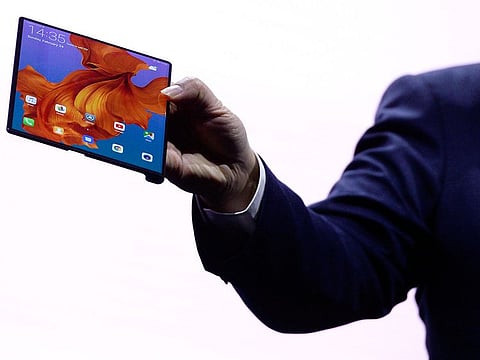The foldable smartphone is more a nod to the future
Real possibilities are likely to open up when Apple decides to launch its version

When companies turn to gimmicks as the headline act in a product launch, you know there’s not much really going on.
We can’t blame Samsung Electronics Co. and Huawei Technologies Co. for releasing $2,000 (Dh7,350) and $2,600 phones respectively. Foldable screens are kind of cool, I suppose.
But so are those weird and wonderful concept cars the auto industry likes to bring out — let me remind you about the Ford Nucleon, the BMW Gina and the Chevy Volt — which sometimes turn into viable products.
Unfortunately, the tech industry moves so quickly that developers don’t often get a chance to roll out concept devices that are intended to showcase the future more than drive sales.
The Galaxy Fold and Mate X, unveiled within a week of each other, fulfil that role. The difference is that both companies intend to make them available for sale — which is why they have astronomical price tags.
These bold moves to release pricey products has been ascribed to Apple Inc.’s relative success in bringing out more expensive iPhones. In reality, industry prices were already trending up well before the world gasped at the idea of spending $1,449 on a consumer-oriented smartphone. (Let’s try to forget Vertu for a minute).
While Huawei has a reputation for cheap devices, the Chinese company led this charge in 2015 with the average price of its models climbing 17 per cent that year while shipments rose 45 per cent — and the premium end was a significantly larger proportion of the company’s total unit sales. The rest of the market followed, with prices jumping 10 per cent in the subsequent two years.
At a time when the smartphone market is in a funk, companies need to find something to excite their audience. 5G is a huge talking point at Mobile World Congress despite the fact that this technology barely advances the ball for smartphones — its real advantage is for internet-of-things devices such as cars.
Most people are happy with their 6.5-inch slate, but thankfully Samsung and Huawei are here to show us what the future might hold for those with more realistic budgets. And when Apple finally brings out a foldable phone — in about two years — fans will marvel at the innovation and queue around the corner to get their hands on one.



